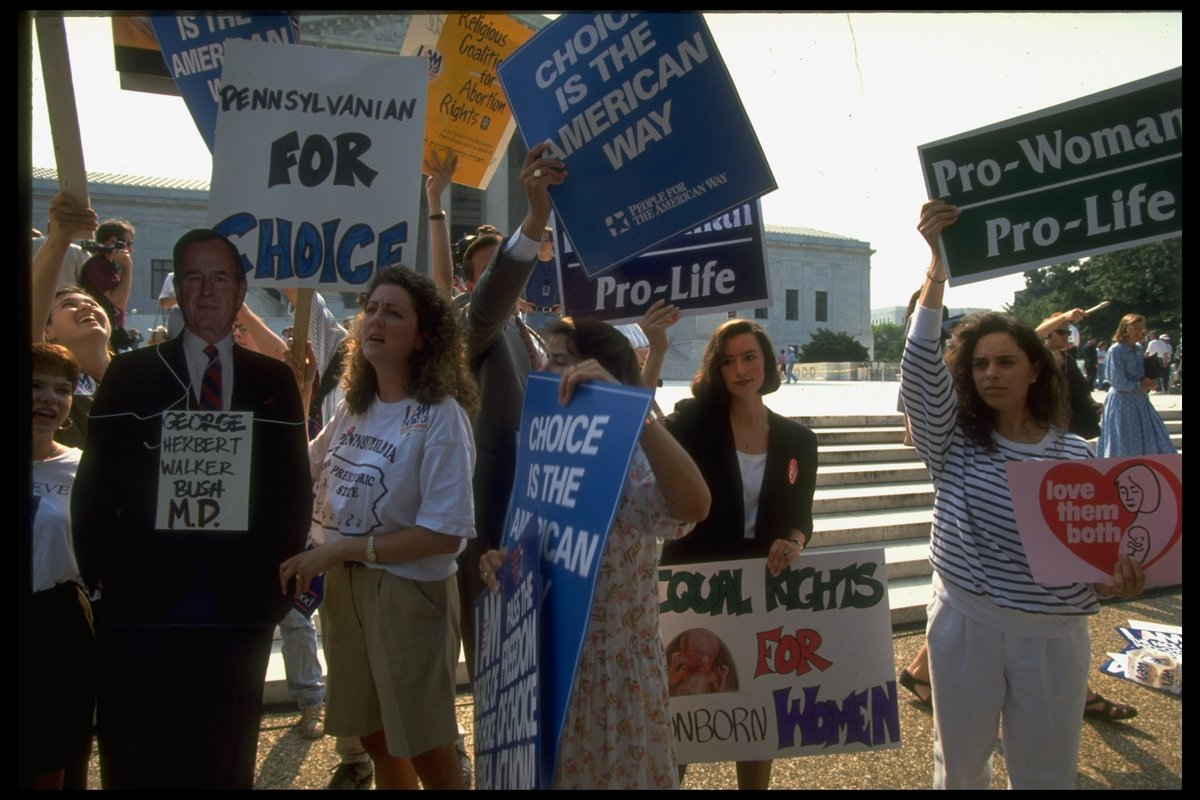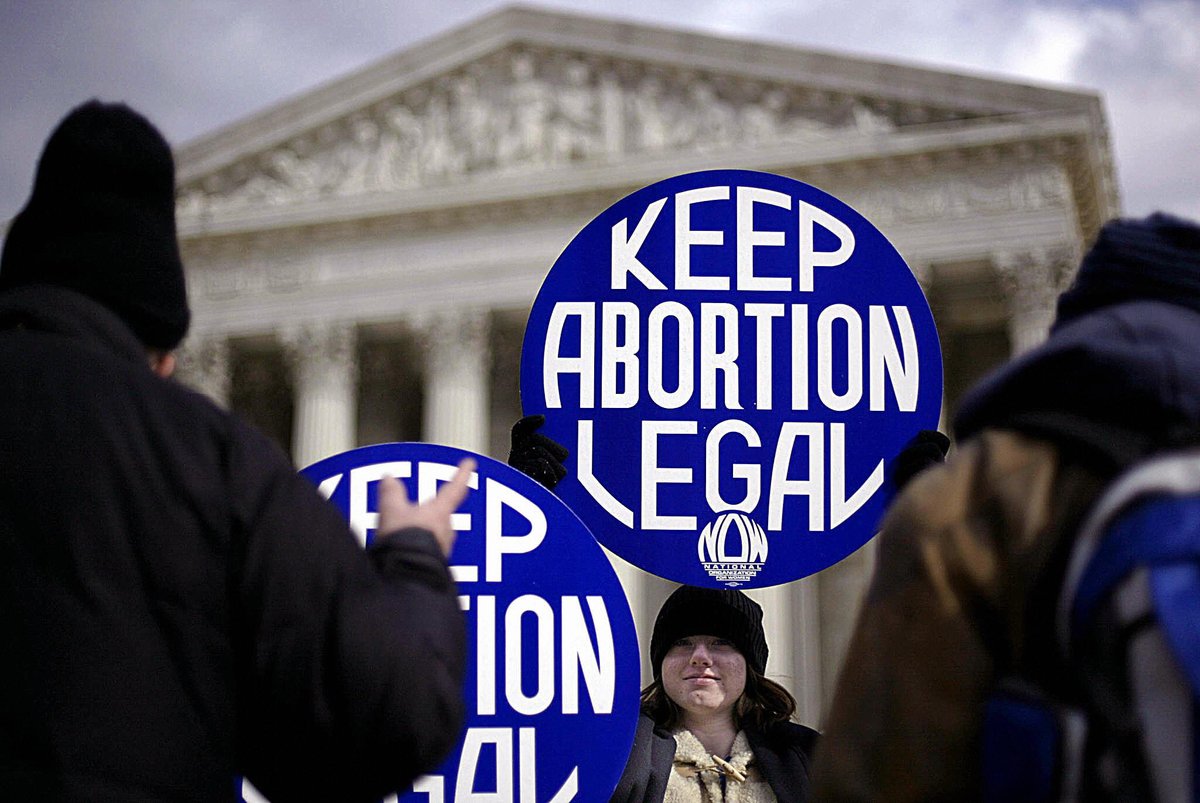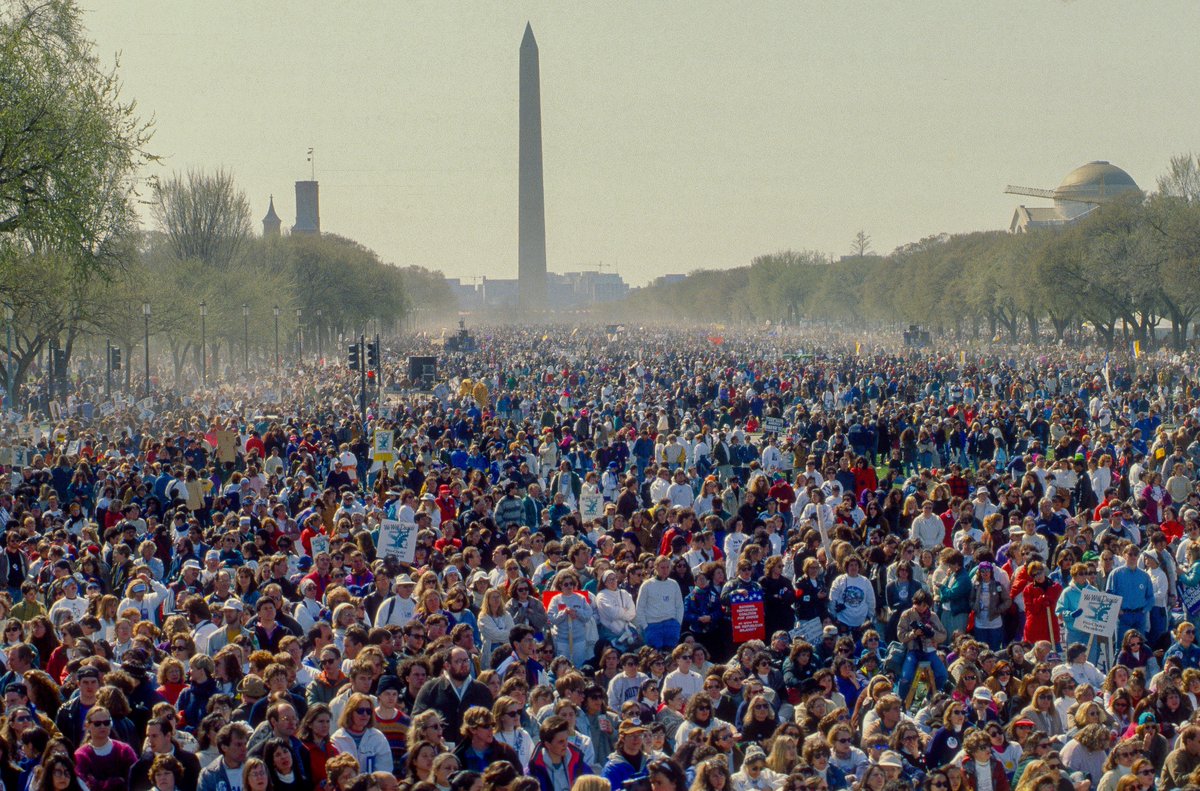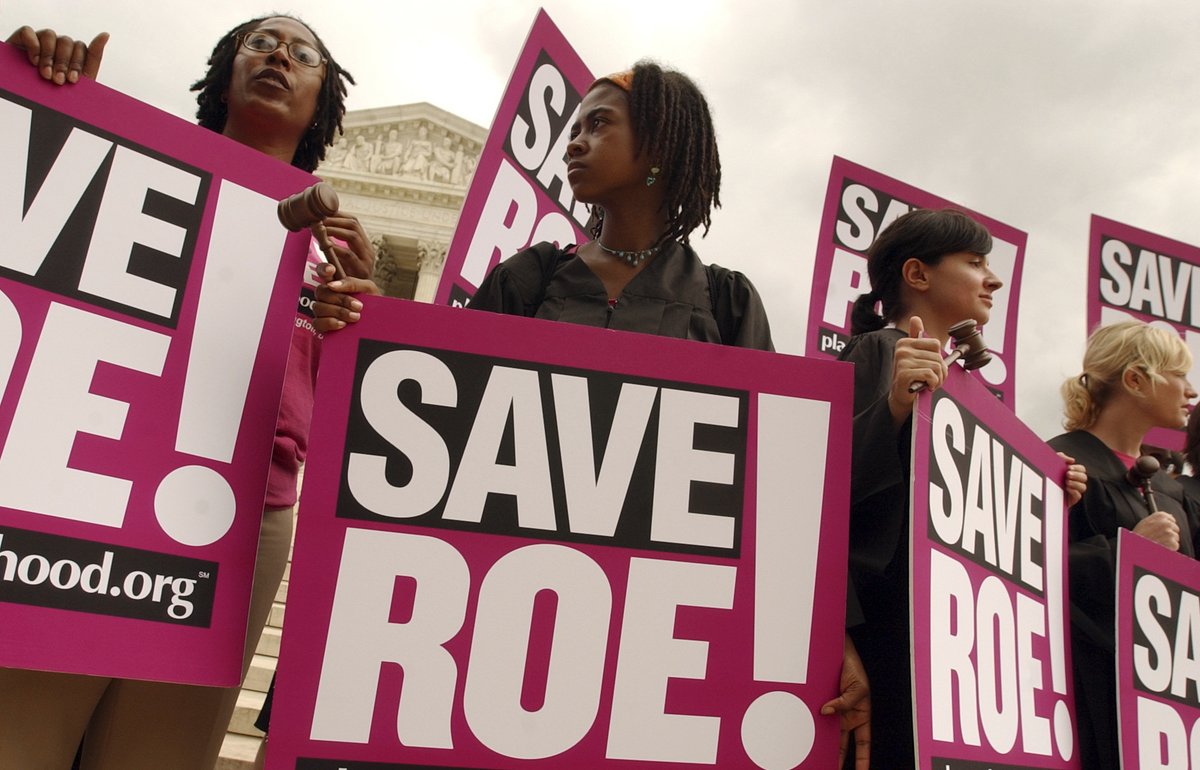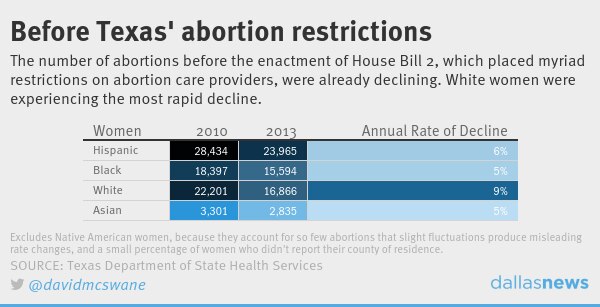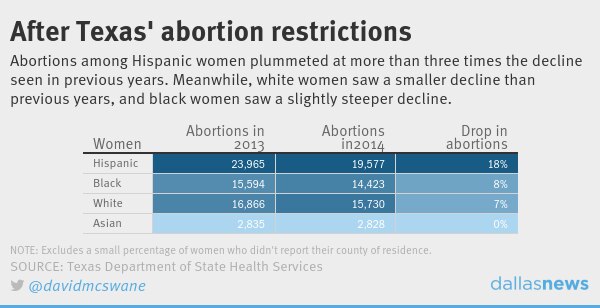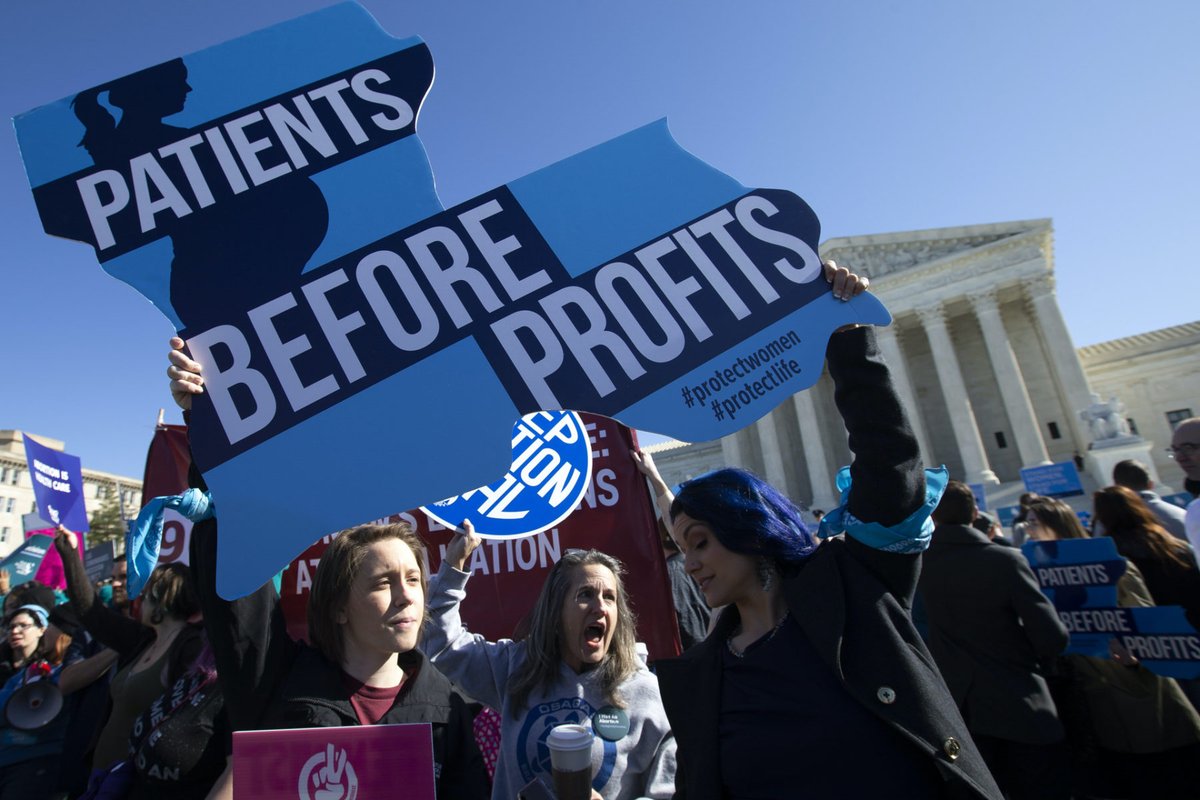Roe v. Wade — decided 48 years ago today — was the first major Supreme Court case to address abortion rights.
 It protected the right to abortion, prohibiting excessive government restrictions.
It protected the right to abortion, prohibiting excessive government restrictions.
What have abortion rights looked like since then? @shefalil explains.
@shefalil explains.
 It protected the right to abortion, prohibiting excessive government restrictions.
It protected the right to abortion, prohibiting excessive government restrictions.What have abortion rights looked like since then?
 @shefalil explains.
@shefalil explains.
 It's important to note that there is no federal law protecting abortion rights.
It's important to note that there is no federal law protecting abortion rights.Roe v. Wade is a court precedent from the interpretation of the U.S. Constitution, which is why it's so precarious. If the #SCOTUS ever reversed the ruling, there is no law to back it up.
#SCOTUS has since scaled back abortion protections, notably with 1992's Planned Parenthood v. Casey. In this case, the court upheld abortion rights, but allowed restrictions that aren't an "undue burden."
And it's why abortion rights now vary based on where you live.
And it's why abortion rights now vary based on where you live.
— In 2020, 26 states passed new abortion restrictions, according to @Guttmacher.
— Currently, 18 states ban abortions after 20 wks.
— Four do so after 24 wks
— 20 states ban after fetal viability, the point at which the fetus can survive outside the womb https://www.guttmacher.org/state-policy/explore/overview-abortion-laws
— Currently, 18 states ban abortions after 20 wks.
— Four do so after 24 wks
— 20 states ban after fetal viability, the point at which the fetus can survive outside the womb https://www.guttmacher.org/state-policy/explore/overview-abortion-laws
Colorado is one of seven states which allows abortions at any point in pregnancy.
In 2018, more than 40 percent of abortion services for a Planned Parenthood in Durango, near the state's border, were for out-of-state patients. https://rewirenewsgroup.com/article/2019/02/21/welcome-to-colorado-where-you-can-get-a-safe-legal-abortion/
In 2018, more than 40 percent of abortion services for a Planned Parenthood in Durango, near the state's border, were for out-of-state patients. https://rewirenewsgroup.com/article/2019/02/21/welcome-to-colorado-where-you-can-get-a-safe-legal-abortion/
Judges interpret "undue burden" differently, leaving room for anti-abortion states to pass more restrictions.
Some state laws, like six-week bans, clearly violate Roe v. Wade. Abortion opponents hope #SCOTUS will rule on such laws, and reverse or scale back Roe v. Wade.
Some state laws, like six-week bans, clearly violate Roe v. Wade. Abortion opponents hope #SCOTUS will rule on such laws, and reverse or scale back Roe v. Wade.
President Joe Biden has vowed to protect abortion rights, including passing a federal law to enshrine Roe v. Wade's protections.
Though Democrats control Congress, it's unclear if he has the votes. https://bit.ly/3iydPnc
Though Democrats control Congress, it's unclear if he has the votes. https://bit.ly/3iydPnc
Advocates expect state abortion restrictions to dominate 2021. Bills have been introduced in Texas, Kentucky, Montana and Ohio.
"Abortion access is actually still hanging on by a thread, and we don't foresee that changing," said @PPFA's Bonyen Lee-Gilmore. https://bit.ly/3iydPnc
"Abortion access is actually still hanging on by a thread, and we don't foresee that changing," said @PPFA's Bonyen Lee-Gilmore. https://bit.ly/3iydPnc
Data suggests that abortion restrictions disproportionately affect Black, Latinx and lower-income people.
Here's data the @DallasNews analyzed from a 2013 abortion law in Texas, which was struck down three years later. https://www.dallasnews.com/news/politics/2016/07/18/hispanic-women-bore-brunt-of-texas-abortion-law-data-shows/
Here's data the @DallasNews analyzed from a 2013 abortion law in Texas, which was struck down three years later. https://www.dallasnews.com/news/politics/2016/07/18/hispanic-women-bore-brunt-of-texas-abortion-law-data-shows/
Donald Trump has reshaped the judiciary since 2016 — including his three #SCOTUS justices, all with histories of opposing abortion.
That, experts say, increases the odds of a Roe v. Wade challenge, with a ruling that scales back protections. https://bit.ly/34OE8z3
That, experts say, increases the odds of a Roe v. Wade challenge, with a ruling that scales back protections. https://bit.ly/34OE8z3
Last summer, the #SCOTUS struck down Louisiana-based abortion restrictions in June Medical Services v. Russo.
But in a concurrence, Chief Justice John Roberts signaled openness to finding in favor of future restrictions. https://www.nbcnews.com/politics/politics-news/crisis-moment-states-advocates-brace-new-fight-over-abortion-rights-n1253665
But in a concurrence, Chief Justice John Roberts signaled openness to finding in favor of future restrictions. https://www.nbcnews.com/politics/politics-news/crisis-moment-states-advocates-brace-new-fight-over-abortion-rights-n1253665
Most recently, a Jan. 12 ruling prevented people from using telemedicine to get medication abortion pills, despite doctors arguing it's necessary during the pandemic.
Advocates say that ruling, as well as the Louisiana decision, are telling signs. https://bit.ly/2KCLO1g
Advocates say that ruling, as well as the Louisiana decision, are telling signs. https://bit.ly/2KCLO1g
Without Roe v. Wade, experts imagine a patchwork of laws, where some states protect access, but others ban the procedure.
"It's already very divided. Access to abortion is hard in many states and very limited," said @KFF's Laurie Sobel.
"It's already very divided. Access to abortion is hard in many states and very limited," said @KFF's Laurie Sobel.
Today marks 48 years since the landmark #SCOTUS abortion ruling in Roe v. Wade.
In a statement from the White House, the administration says they are "committed to codifying Roe v. Wade and appointing judges that respect foundational precedents like Roe." https://www.whitehouse.gov/briefing-room/statements-releases/2021/01/22/statement-from-president-biden-and-vice-president-harris-on-the-48th-anniversary-of-roe-v-wade/
In a statement from the White House, the administration says they are "committed to codifying Roe v. Wade and appointing judges that respect foundational precedents like Roe." https://www.whitehouse.gov/briefing-room/statements-releases/2021/01/22/statement-from-president-biden-and-vice-president-harris-on-the-48th-anniversary-of-roe-v-wade/

 Read on Twitter
Read on Twitter